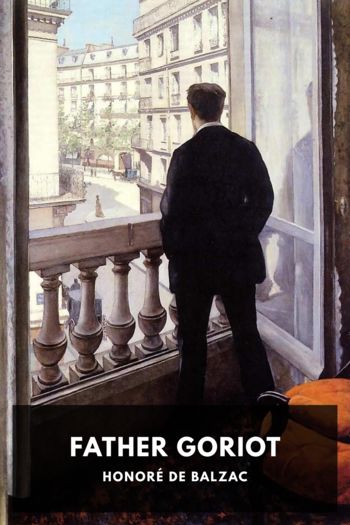Father Goriot by Honoré de Balzac (books to read for beginners txt) 📕

Description
Father Goriot, today considered one of Balzac’s most important works, is part of his novel sequence The Human Comedy. It’s the first of Balzac’s novels to feature recurring characters, a technique that he famously developed in his subsequent novels.
Set in Paris during the Bourbon Restoration of the early 1800s, Father Goriot follows Eugène de Rastignac, a student born to noble roots but little means, as he tries to climb the social ladder in Paris. The impoverished Goriot is staying at the same boardinghouse as Rastignac—and Rastignac sees opportunity in Goriot’s richly-married and elegant daughters.
The novel has been widely praised for its realist portrayal of Parisian life of various social classes, and its deep influence on French literature is still felt today. While it had chapter breaks when it was initially serialized, Balzac removed them when compiling his definitive edition of The Human Comedy, a change that is preserved in this edition.
Read free book «Father Goriot by Honoré de Balzac (books to read for beginners txt) 📕» - read online or download for free at americanlibrarybooks.com
- Author: Honoré de Balzac
Read book online «Father Goriot by Honoré de Balzac (books to read for beginners txt) 📕». Author - Honoré de Balzac
Eugène, watching the old man’s face, thought that his friend was lightheaded.
“Come,” he said, “do not talk any more, you must rest—” Just then Bianchon came up, and Eugène went down to dinner.
The two students sat up with him that night, relieving each other in turn. Bianchon brought up his medical books and studied; Eugène wrote letters home to his mother and sisters. Next morning Bianchon thought the symptoms more hopeful, but the patient’s condition demanded continual attention, which the two students alone were willing to give—a task impossible to describe in the squeamish phraseology of the epoch. Leeches must be applied to the wasted body, the poultices and hot foot-baths, and other details of the treatment required the physical strength and devotion of the two young men. Mme. de Restaud did not come; but she sent a messenger for the money.
“I expected she would come herself; but it would have been a pity for her to come, she would have been anxious about me,” said the father, and to all appearances he was well content.
At seven o’clock that evening Thérèse came with a letter from Delphine.
“What are you doing, dear friend? I have been loved for a very little while, and I am neglected already? In the confidences of heart and heart, I have learned to know your soul—you are too noble not to be faithful forever, for you know that love with all its infinite subtle changes of feeling is never the same. Once you said, as we were listening to the Prayer in Mosè in Egitto, ‘For some it is the monotony of a single note; for others, it is the infinite of sound.’ Remember that I am expecting you this evening to take me to Mme. de Beauséant’s ball. Everyone knows now that the King signed M. d’Ajuda’s marriage-contract this morning, and the poor Vicomtesse knew nothing of it until two o’clock this afternoon. All Paris will flock to her house, of course, just as a crowd fills the Place de Grève to see an execution. It is horrible, is it not, to go out of curiosity to see if she will hide her anguish, and whether she will die courageously? I certainly should not go, my friend, if I had been at her house before; but, of course, she will not receive society any more after this, and all my efforts would be in vain. My position is a very unusual one, and besides, I am going there partly on your account. I am waiting for you. If you are not beside me in less than two hours, I do not know whether I could forgive such treason.”
Rastignac took up a pen and wrote:
“I am waiting till the doctor comes to know if there is any hope of your father’s life. He is lying dangerously ill. I will come and bring you the news, but I am afraid it may be a sentence of death. When I come you can decide whether you can go to the ball.—Yours a thousand times.”
At half-past eight the doctor arrived. He did not take a very hopeful view of the case, but thought that there was no immediate danger. Improvements and relapses might be expected, and the good man’s life and reason hung in the balance.
“It would be better for him to die at once,” the doctor said as he took leave.
Eugène left Goriot to Bianchon’s care, and went to carry the sad news to Mme. de Nucingen. Family feeling lingered in her, and this must put an end for the present to her plans of amusement.
“Tell her to enjoy her evening as if nothing had happened,” cried Goriot. He had been lying in a sort of stupor, but he suddenly sat upright as Eugène went out.
Eugène, half heartbroken, entered Delphine’s. Her hair had been dressed; she wore her dancing slippers; she had only to put on her ball-dress; but when the artist is giving the





Comments (0)